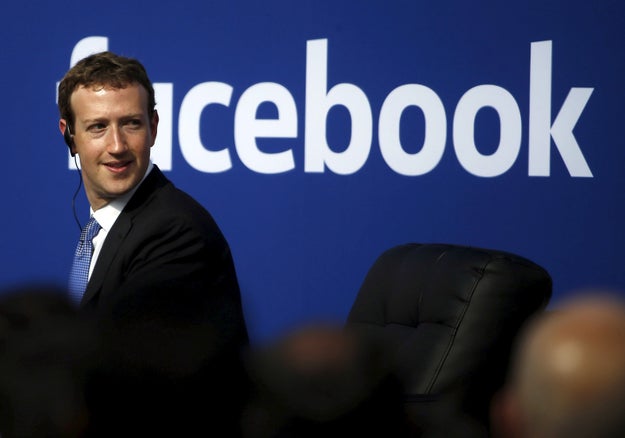
Stephen Lam / Reuters
Earlier this month, Facebook, at the request of the law enforcement, disabled Korryn Gaines’ Facebook and Instagram accounts during the standoff with Baltimore County Police that would ultimately end her life. Facebook's decision to comply with that request has drawn sharp criticism — and is the latest example of internal murkiness around how and when the company censors speech — at a time when policing activists are demanding greater transparency from law enforcement officials.
It took about an hour for Facebook to disable Gaines’ accounts after police said her posts were escalating the standoff. But the social network’s policy and protocols for handling such emergency requests for the removal of content are unclear. On the company’s government request report, Facebook presents its information on emergency law enforcement requests as a single category; instances of Facebook taking someone’s account offline are lumped together with cases of Facebook handing over information to law enforcement. Facebook labels the category “Emergency Disclosures.”
"We comply with emergency requests based on representations from law enforcements and the facts as we understand them. That compliance without delay is required to prevent physical harm or death — that's our standard," a spokesperson told BuzzFeed News. Facebook has a team on staff that fields emergency requests, but the company declined to share details on the team’s makeup, its leadership, how many staff members they employ, or more on the protocols that guide the internal deliberation process.
The Baltimore County Police Department has said they filed for the emergency removal to help ensure the safety of Gaines, her child, and for the officers involved.
“Gaines was posting video of the operation, and followers were encouraging her not to comply with negotiators' requests that she surrender peacefully. This was a serious concern,” the police said in a statement. Most of Gaines’ posts from the encounter are no longer publicly accessible.
Facebook agreed to take Gaines’ accounts offline, and the police emphasized that it was ultimately the company’s decision.
Facebook releases information detailing the number of law enforcement requests for people’s data that the company receives. In the second half of 2015, Facebook received 855 emergency disclosure requests and complied with 73% of them. Facebook, however, does not state how many of those requests were for the suspension or removal of content, as opposed to providing data to law enforcement. A company spokesperson declined to clarify the figures.
As the Intercept reported earlier this week, Facebook’s policies on emergency requests from law enforcement appear to only apply to investigations in which law enforcement is seeking information, not trying to block its dissemination. According to the company’s government request report, Facebook displays information regarding “requests for data” and “percentage of requests where some data produced.” There’s no stated language on account takedowns.
The Facebook spokesperson told BuzzFeed News that its standards for compliance and the statistics it publishes on emergency requests apply to both disclosures and takedowns.
But Lee Rowland, an attorney with the ACLU’s speech, privacy, and technology project told BuzzFeed News that it’s a mistake for Facebook to consider law enforcement requests for deactivation the same way it does for disclosures.
“There should be a much higher bar for silencing content because you are not just impacting one person’s rights, you are impacting the public’s right to access that speech,” she said.
Rowland added that powerful images, including the Facebook live video of Castile, are playing a crucial role in elevating the national debate on police accountability. And by censoring speech at the request of law enforcement, without a warrant, Facebook risks not only circumventing our rights to record interactions with police, but in alienating Americans who see the company as all too eager to side with the government.
“We have the Constitution to protect us from government abuse,” she said. “What’s a little trickier to establish is a right to be free from social media giants who voluntarily cooperate with requests from law enforcement that don’t meet those Constitutional standards.”
from BuzzFeed - Tech https://www.buzzfeed.com/hamzashaban/facebook-offers-few-details-on-account-takedowns-following-k?utm_term=4ldqpia
No comments:
Post a Comment